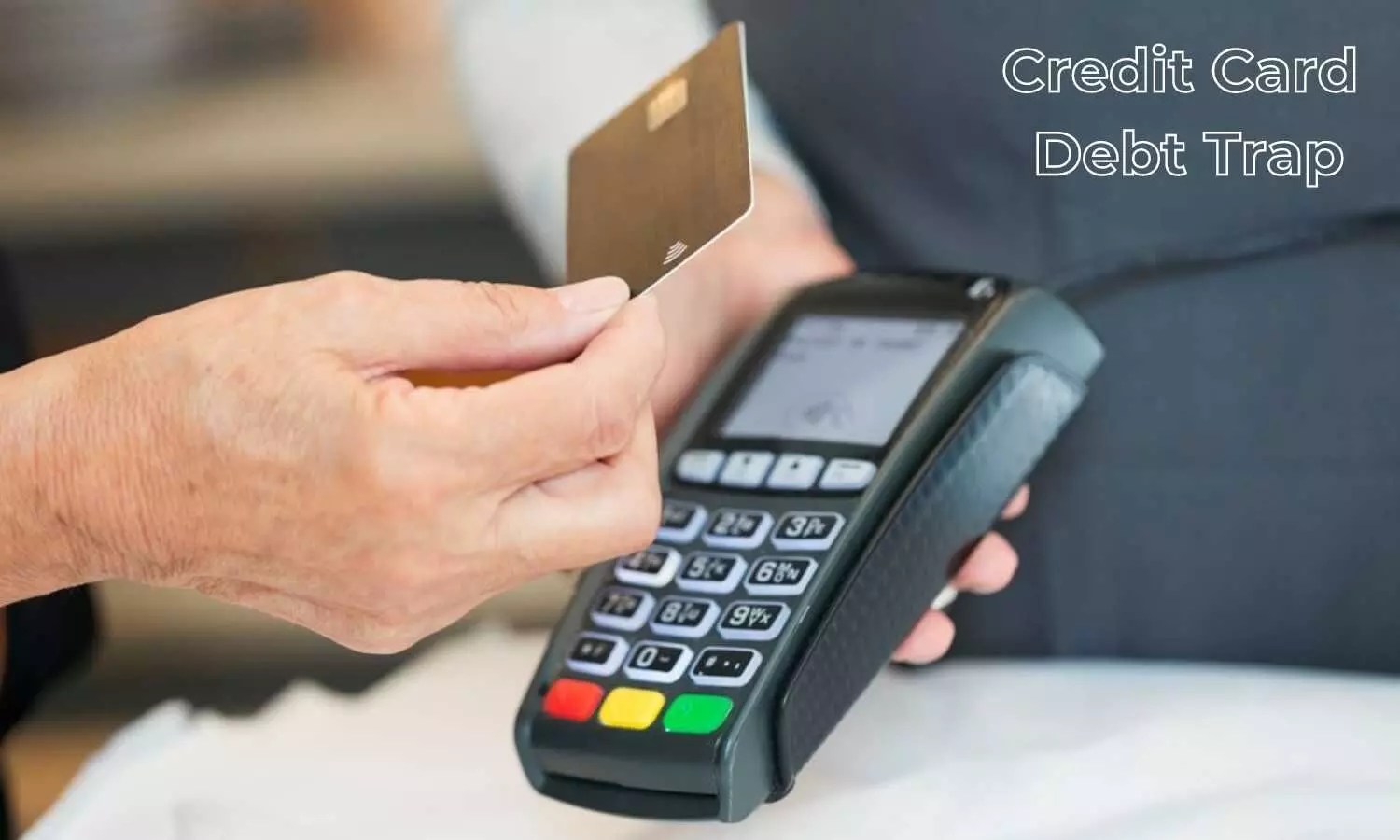Credit card debt: Avoid common traps and pay off faster
Struggling with credit card debt? Learn about common pitfalls and discover effective strategies to pay off your balances quickly and regain financial control.
image for illustrative purpose

Credit card debt is a pervasive issue for many individuals, often leading to significant financial strain and stress. Managing and eliminating this debt requires both understanding common pitfalls and employing effective strategies. This article will explore the traps associated with credit card debt and provide actionable strategies to help you pay off your balances more quickly.
Common Traps of Credit Card Debt
1. Minimum Payment Mentality: One of the biggest traps is making only the minimum payment each month. While this keeps you in good standing with your credit card company, it prolongs the debt repayment process and maximises the amount of interest you pay over time. Credit card companies often set low minimum payments to extend the life of your debt and increase their interest earnings.
2. High-Interest Rates: Many credit cards come with high-interest rates, which can significantly increase the amount you owe if you carry a balance. These rates can quickly turn a manageable debt into a financial burden, especially if you’re not paying off your full balance each month.
3. Multiple Cards: Juggling multiple credit cards can complicate your financial situation. It’s easy to lose track of payment dates, interest rates, and balances. This can lead to missed payments, which damage your credit score and incur late fees, further exacerbating your debt.
4. Impulse Spending: Credit cards can encourage impulse buying since they provide easy access to funds that you might not have immediately available. This can lead to unnecessary purchases and an accumulation of debt that becomes difficult to manage.
5. Introductory Offers: Attractive introductory offers such as 0% APR can lure you into taking on more debt. However, when the introductory period ends, the interest rate can skyrocket, leaving you with a larger debt load than anticipated.
Strategies to Pay Off Credit Card Debt Faster
1. Debt Avalanche Method: This strategy involves paying off your debts with the highest interest rates first while making minimum payments on the rest. By focusing on the most expensive debt, you reduce the amount of interest you pay over time, which can help you clear your debt more quickly.
2. Debt Snowball Method: Alternatively, the debt snowball method prioritises paying off your smallest balances first. This can provide psychological motivation as you see debts being eliminated one by one. While it might not save as much on interest as the avalanche method, it can be highly effective for maintaining momentum.
3. Balance Transfers: Consider transferring your high-interest debt to a credit card with a lower interest rate or a 0% introductory rate. This can reduce the amount of interest you pay, but be mindful of transfer fees and the duration of the introductory rate to ensure it’s a beneficial move.
4. Increase Your Payments: Whenever possible, pay more than the minimum payment. Even small extra amounts can significantly reduce your principal balance and the overall interest paid. Setting up automatic payments or reminders can help ensure you consistently pay more each month.
5. Consolidate Your Debt: Debt consolidation involves taking out a single loan to pay off multiple credit card debts. This can simplify your payments and often comes with a lower interest rate, making it easier to manage and pay off your debt.
6. Cut Unnecessary Expenses: Review your budget to identify areas where you can cut back on spending. Redirecting these savings towards your credit card debt can accelerate your repayment process. Consider cutting back on dining out, subscriptions, and non-essential purchases.
7. Increase Your Income: Finding ways to increase your income can provide additional funds to pay off your debt. This might include taking on a part-time job, freelancing, or selling items you no longer need. The extra income can make a significant difference in your debt repayment journey.
8. Negotiate with Creditors: Sometimes, creditors are willing to negotiate terms, such as lowering your interest rate or waiving late fees, especially if you’re struggling to make payments. It’s worth contacting them to see if there are any options available to make your debt more manageable.
9. Use Windfalls Wisely: If you receive any unexpected money, such as a tax refund, bonus, or gift, use it to pay down your credit card debt. Applying these windfalls directly to your balances can give a substantial boost to your repayment efforts.
10. Seek Professional Help: If your debt feels overwhelming, consider seeking help from a credit counseling agency. These organisations can provide personalised advice and help you develop a plan to pay off your debt. They can also negotiate with creditors on your behalf and offer debt management programs.
Credit card debt can be a significant financial hurdle, but with the right strategies and a disciplined approach, it is possible to overcome it. Avoiding common traps, such as making only minimum payments or succumbing to impulse spending, is crucial. By adopting effective repayment strategies like the debt avalanche or snowball methods, and considering options like balance transfers and debt consolidation, you can accelerate your journey to becoming debt-free. Remember, the key to success lies in consistency and commitment to your financial goals.

